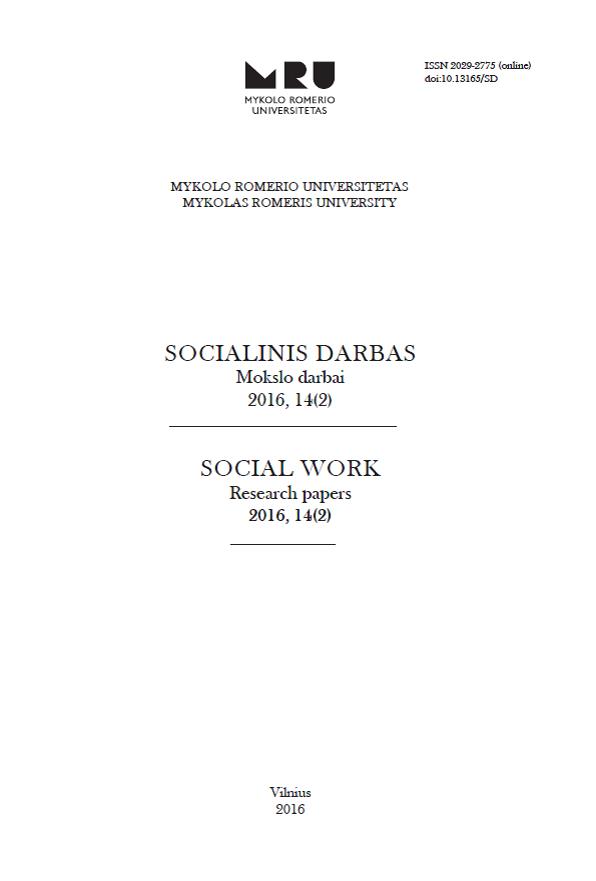EPILEPSIJOS KAIP LĖTINĖS LIGOS APIBRĖŽTIS SOCIOLOGINĖJE PERSPEKTYVOJE
CONCEPTUALIZATION OF EPILEPSY AS CHRONIC DISEASE IN THE SOCIOLOGICAL PERSPECTIVE
Author(s): Polina Šedienė, Jolanta PivorienėSubject(s): Social Sciences, Health and medicine and law, Welfare services
Published by: Mykolas Romeris University
Keywords: health; illness; chronical illness; symbolic meanings of epilepsy; social consequences of epilepsy;
Summary/Abstract: Health was an interest of studies from the first sociological classics. Health sociology analysis such concepts as health, disease, illness, disability or more operationalized terms like chronical disease, physical or psychical disability. Health is defined as balance and illness as its destruction. Functionalism and symbolic interaction theories laid back ground for the sociology of health. Modern sociologist also analyse health in modernity terms. More and more people experience stress, depression, burn out, chronical pain, etc., traditional medicine hardly can solve these challenges and people suffer changing identities, roles and interactions in their social life. The aim of the article is to conceptualise epilepsy in the context of classical sociological theories. Scientific literature analysis method is used in the article. Classical sociological theories analyse changing social roles of persons with illness, interactions between society and person with new roles, stigmatization processes, acceptance or rejections. In the general context of health and illness, chronical illness is investigated as specific research object. Epilepsy is one of the chronical illness which is infield of sociological interest. Epilepsy in the light of classical sociological theories is analysed by describing changes of social roles, role of the society and in forming social identity of person with epilepsy, labelling and stigmatization. Big emphasis is put on how symbolic meanings are attached to epilepsy and what are social consequences of the illness. A person and a society attach such meanings to the epilepsy which enforces labelling and stigmatisation leading to stronger negative social consequences of the illness. Present and future social interactions are weakened and inclusion of persons with epilepsy to the society is diminished.Epilepsy affects all aspects of person’s social life. During process not only person with epilepsy but his or her family as well isolates themselves or are isolated by society. Family trajectory could be interrupted by epilepsy in any stage starting from its beginning, birth of a child, any other distribution of roles and responsibilities. Education and employability history also are affected by epilepsy.
Journal: Socialinis darbas
- Issue Year: 14/2016
- Issue No: 2
- Page Range: 188-198
- Page Count: 11
- Language: Lithuanian

